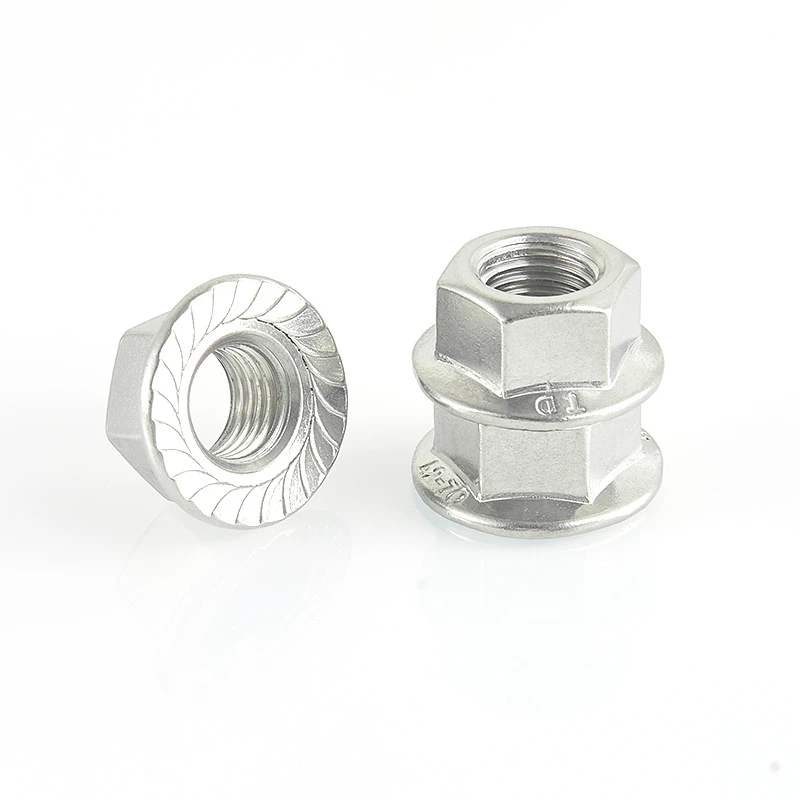

Using Self-Tapping Screws for Metal Applications and Installation Techniques
Nov . 27, 2024 10:31 Back to list
Using Self-Tapping Screws for Metal Applications and Installation Techniques
Understanding Self-Tapping Screws in Metal Applications
Self-tapping screws are an essential component in various metalworking applications, offering distinct advantages over traditional screws. As the construction and manufacturing industries continue to evolve, the demand for efficient, reliable fastening solutions has grown, making self-tapping screws a critical tool for professionals. This article explores the functionality, types, applications, and benefits of using self-tapping screws in metal.
What are Self-Tapping Screws?
Self-tapping screws are designed to create their own internal thread as they are driven into the material. Unlike standard screws, which require a pre-drilled hole, self-tapping screws can penetrate a metal surface efficiently, forming threads in the process. This property makes them ideal for working with various materials, particularly metal, where precision and speed are crucial.
Types of Self-Tapping Screws
There are several types of self-tapping screws, each tailored for different applications
1. Thread-Forming Screws These screws displace material without cutting it, creating a tight fit in pre-drilled holes. They are commonly used in softer metals like aluminum.
2. Thread-Cutting Screws These screws come with sharp edges and are designed to remove material as they penetrate. They are ideal for harder metals such as stainless steel or higher-strength alloys.
3. Self-Drilling Screws Often referred to as Tek screws, these feature a drill bit-like tip that allows them to drill into metal and create their own hole. This makes them particularly useful for applications where speed and efficiency are paramount.
Applications of Self-Tapping Screws in Metal
Self-tapping screws are widely used in various industries, from construction to automotive manufacturing. Some common applications include
self tapping screws in metal

- Metal Fabrication These screws are ideal for joining metal components, such as brackets and panels, in fabrication processes. - HVAC Systems Self-tapping screws are frequently used to secure ductwork due to their ability to withstand vibration and provide a strong hold. - Automotive Industry In automotive assembly, self-tapping screws are utilized to fasten parts securely, contributing to the overall integrity of vehicles. - Electrical Enclosures When mounting devices within metal enclosures, self-tapping screws ensure that components are fastened securely, enhancing safety and durability.
Benefits of Using Self-Tapping Screws in Metal
There are several advantages to choosing self-tapping screws for metal applications
1. Efficiency Since they eliminate the need for pre-drilling, self-tapping screws save time during the installation process, making them a preferred choice in fast-paced environments.
2. Versatility These screws can be used with various metal thicknesses and types, providing flexibility in applications.
3. Cost-Effectiveness Reducing the steps required for fastening lowers labor costs and enhances overall project efficiency.
4. Strong Hold Self-tapping screws create secure connections, which are crucial in applications where vibration, movement, or load-bearing capabilities are involved.
5. Ease of Use With the appropriate tools, installing self-tapping screws is straightforward, allowing even less experienced workers to achieve reliable results.
Conclusion
Self-tapping screws are an indispensable tool in metalworking, offering several advantages that contribute to their popularity in various industries. Their ability to create threads as they are installed, coupled with their efficiency and versatility, makes them ideal for a wide range of applications. Whether in construction, automotive assembly, or HVAC systems, self-tapping screws enhance productivity and ensure reliable connections. As technology and materials continue to evolve, self-tapping screws will undoubtedly remain a vital part of modern fastening solutions. Understanding their types and applications helps professionals select the right screws for their specific needs, promoting efficiency and quality in metalworking projects.
Latest news
-
Hot Dip Galvanized Bolts-About LongZe|High Strength, Corrosion Resistance
NewsJul.30,2025
-
High-Strength Hot Dip Galvanized Bolts - Hebei Longze | Corrosion Resistance, Customization
NewsJul.30,2025
-
Hot Dip Galvanized Bolts-Hebei Longze|Corrosion Resistance&High Strength
NewsJul.30,2025
-
High-Strength Hot-Dip Galvanized Bolts-Hebei Longze|Corrosion Resistance&High Strength
NewsJul.30,2025
-
Hot Dip Galvanized Bolts-Hebei Longze|Corrosion Resistance&High Strength
NewsJul.30,2025
-
Hot Dip Galvanized Bolts - Hebei Longze | Corrosion Resistance, High Strength
NewsJul.30,2025

